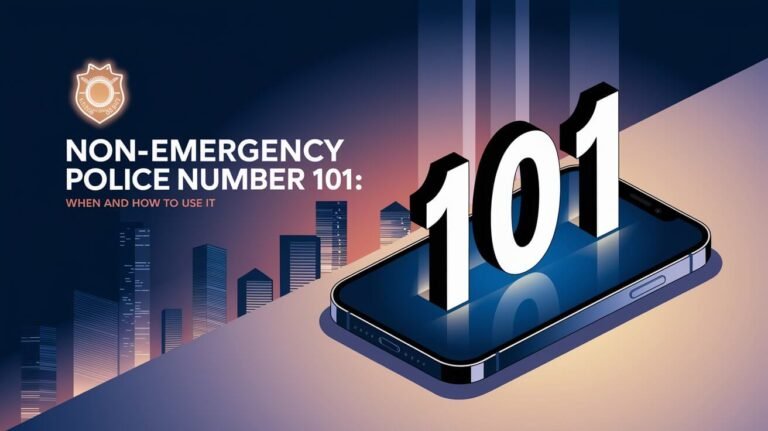How to Become a Police Officer in Texas: Full 2024 Guide

Are you ready to serve and protect the Lone Star State? Becoming a police officer in Texas involves meeting specific requirements, completing rigorous training, and passing several tests. This guide explains how to start your law enforcement career in Texas.
Texas Law Enforcement Career Overview
Texas boasts the second-largest police force in the United States, offering numerous opportunities for aspiring officers. From bustling cities to rural counties, the state needs dedicated individuals to maintain law and order.
Job Outlook for Police Officers in Texas
The future looks bright for those aiming to join Texas law enforcement. By 2028, police and sheriff’s patrol officer jobs are expected to grow by 9%, with about 5,040 job openings annually. This growth rate outpaces many other careers, making it an attractive option for job seekers.
Salary Expectations for Texas Police Officers
Texas police officers earn competitive salaries. The average annual pay for entry-level officers can reach $81,742. Top-paying cities include:
- Pearland: $84,799
- Dallas: $70,629
- Houston: $64,599
As you gain experience and advance in your career, your earning potential increases.
Basic Requirements for Becoming a Texas Police Officer
Before you start polishing your badge, you’ll need to meet several basic requirements.
Age and Citizenship Requirements
To become a police officer in Texas, you must be:
- At least 21 years old
- A United States citizen
Some departments accept applicants as young as 18 if they have additional qualifications.
Education and Military Service Options
You’ll need one of the following:
- High school diploma or GED
- Associate’s degree or 60 college credit hours (if you’re under 21)
- Honorable discharge from the U.S. military after at least two years of active service (if you’re under 21)
While not always required, a degree in criminal justice or a related field can give you an edge in the hiring process.
Physical and Mental Fitness Standards
Police work is demanding. You’ll need to:
- Pass a physical fitness test
- Meet vision and hearing requirements
- Be free from disqualifying medical conditions
- Pass a psychological evaluation
Step-by-Step Process to Become a Police Officer in Texas
Ready to start your journey? Here’s a roadmap to becoming a Texas police officer.
Meeting Minimum Qualifications
First, ensure you meet all the basic requirements mentioned earlier. Additionally, you must:
- Have a valid Texas driver’s license
- Have a clean criminal record
- Be free from drug dependencies
Completing the Application Process
Once you meet the qualifications, it’s time to apply. This process typically includes:
- Submitting an application form
- Providing necessary documents (birth certificate, high school diploma, etc.)
- Completing a personal history statement
Passing the Written Examination
The written test assesses your knowledge and skills in areas like:
- Reading comprehension
- Writing ability
- Basic math
- Problem-solving
Study guides are often available to help you prepare.
Acing the Physical Fitness Test
The physical fitness test evaluates your strength, endurance, and agility. Common elements include:
- 1.5-mile run
- Push-ups
- Sit-ups
- Vertical jump
- Agility course
Regular exercise and targeted training can help you succeed in this crucial step.
Undergoing Background Checks and Interviews
Expect a thorough background investigation. Investigators will:
- Review your criminal history
- Check your driving record
- Contact references
- Verify your employment history
You’ll also face an interview with the department’s hiring board. Be honest, professional, and showcase your commitment to public service.
Completing Psychological and Medical Evaluations
The final hurdles include:
- A comprehensive psychological assessment
- A full medical examination
These ensure you’re mentally and physically fit for the demands of police work.
Police Academy Training in Texas
Congratulations! You’ve been accepted into the police academy. Now the real work begins.
Duration and Content of Basic Training
Texas police academies typically run for 6-9 months. You’ll learn about:
- Criminal law
- Traffic laws
- Emergency vehicle operation
- Firearms training
- Self-defense tactics
- First aid and CPR
Skills Taught at Texas Police Academies
Beyond book learning, you’ll develop crucial skills like:
- De-escalation techniques
- Crisis intervention
- Communication skills
- Physical fitness
- Investigative procedures
Passing the State Licensing Examination
After completing academy training, you must pass the Texas Commission on Law Enforcement (TCOLE) licensing exam. This test covers all aspects of your training and is your final step before becoming a licensed peace officer.
Starting Your Career as a Texas Police Officer
You’ve earned your badge, but the learning doesn’t stop here.
Field Training and Probationary Period
New officers typically undergo 6-12 months of field training. You’ll work alongside experienced officers, applying your academy knowledge to real-world situations.
Continuing Education and Career Advancement
Texas requires officers to complete ongoing training throughout their careers. You can also pursue specialized roles or advance through the ranks with additional education and experience.
Common Challenges and How to Overcome Them
Becoming a police officer isn’t easy, but with preparation and determination, you can succeed.
Preparing for the Application Process
- Start early: Begin preparing months before you apply
- Stay fit: Maintain a regular exercise routine
- Study: Review relevant laws and police procedures
- Volunteer: Community service can boost your application
Staying Fit and Motivated During Training
- Set goals: Break down your training into manageable chunks
- Find a support system: Connect with fellow trainees or mentors
- Take care of yourself: Proper nutrition and rest are crucial
Balancing Work and Personal Life as a Police Officer
- Communicate openly with family and friends about your schedule
- Practice stress-management techniques
- Use your days off wisely to recharge
Specialized Roles and Departments in Texas Law Enforcement
Texas offers diverse law enforcement career paths.
Texas Highway Patrol
As a state trooper, you’ll focus on traffic law enforcement and accident investigation on Texas highways.
Texas Rangers
This elite investigative division handles major crimes, unsolved cases, and public corruption.
Local Police Departments vs. Sheriff’s Offices
- Police departments serve cities and towns
- Sheriff’s offices operate at the county level
- Each offers unique opportunities and challenges
Resources for Aspiring Texas Police Officers
Don’t go it alone. Use these resources to support your journey.
Texas Commission on Law Enforcement (TCOLE)
TCOLE oversees licensing and sets standards for peace officers in Texas. Their website offers valuable information on requirements and training.
Police Associations and Support Networks
Join organizations like the Texas Municipal Police Association for networking, training, and career support.
bottom line
Becoming a police officer in Texas is a challenging but rewarding journey. With dedication, hard work, and the right preparation, you can join the ranks of Texas’s finest. Remember, every step you take brings you closer to serving your community and making a real difference in people’s lives.
Are you ready to take the first step towards your law enforcement career in Texas? Start by assessing your qualifications and researching local departments. Your future in Texas law enforcement awaits!






